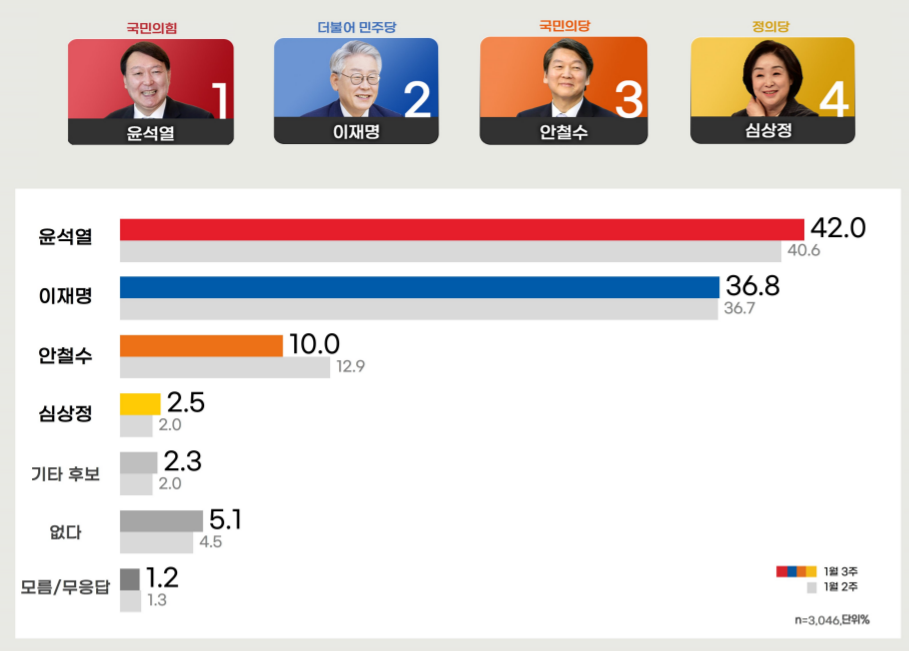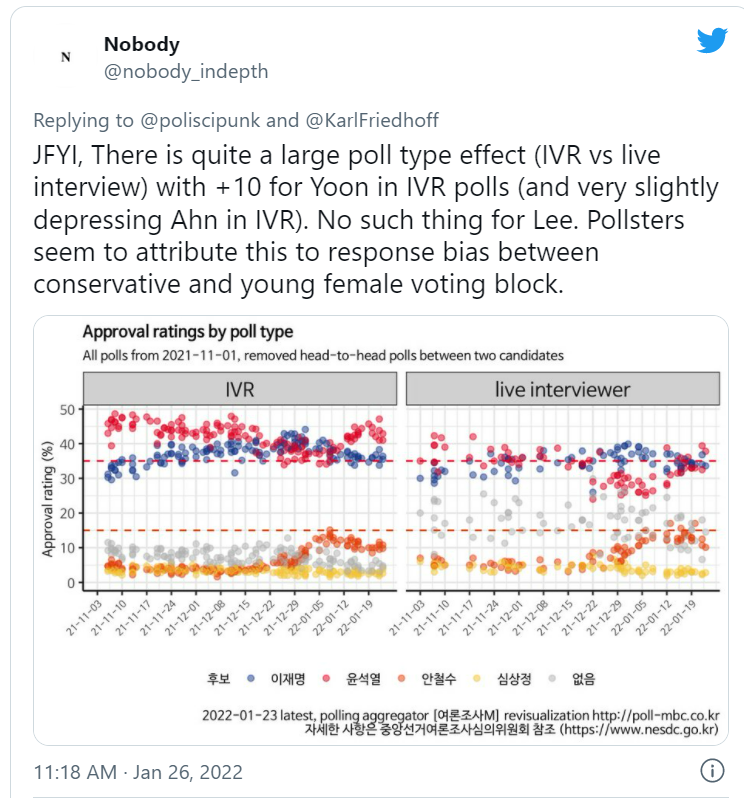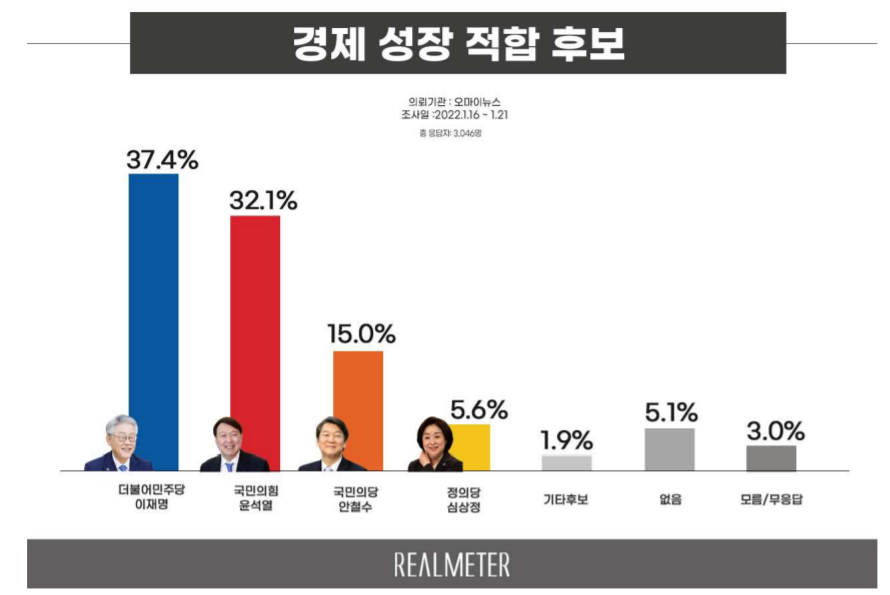Polling in South Korea Diverges on Presidential Election

Just one month out, polling in South Korea shows two different presidential races. That may have consequences following the election.
With just over one month left until the March 9 presidential election in South Korea, the polls continue to show a tight race. Well, at least some of the polls show this. In surveys from Gallup Korea and the National Barometer Survey, the Democratic Party’s Lee Jae-myung and the People’s Power Party’s Yoon Seok-yeol are virtually tied at about 35 percent each. That feels just about right. It’s a tight race between two candidates who are “reviled” by the South Korean public. But if Lee Jae-myung wins a tight contest, some conservatives may be blindsided as a number of polls show Yoon with a commanding lead as the race enters the final stretch. That could have consequences on political stability in the period just after the election.;
Unlike other polls showing a tight race, polling from RealMeter, among others, continues to show Yoon with a considerable lead through late January. In the poll from January 21 (below), Yoon (in red) holds a five-percentage point lead over Lee (blue). The following week, that lead ballooned to an improbable nine percentage points. What’s going on here?

Part of the issue stems from RealMeter’s sample. The January 21 poll oversampled men by 12 percentage points and respondents in their 60s by six percentage points. Both of those cohorts are known to lean conservative, with those in their 60s leaning strongly conservative. This conservative-leaning sample is coupled with an interactive voice response (IVR) interview, rather than a live interviewer. As shown below, with Yoon in red, IVR polling consistently turns out polling in favor of Yoon in ways that live interviews do not.
Part of the issue stems from RealMeter’s sample. The January 21 poll oversampled men by 12 percentage points and respondents in their 60s by six percentage points. Both of those cohorts are known to lean conservative, with those in their 60s leaning strongly conservative. This conservative-leaning sample is coupled with an interactive voice response (IVR) interview, rather than a live interviewer. As shown below, with Yoon in red, IVR polling consistently turns out polling in favor of Yoon in ways that live interviews do not.

But especially interesting is that these polls—even with their apparent conservative leanings—find that Lee Jae-myung is seen as better able to handle the challenges facing the country. In the January 21 RealMeter poll that found Yoon with a five-point lead, Lee Jae-myung held a five-point lead on being better equipped to manage the economy (image below). And in a poll from the first week of January—when Yoon’s campaign was struggling—Lee held a 15-percentage point lead on being more capable at handling diplomatic affairs.

It's still far too early to make any sort of forecast of who will win this election. Korean elections are notoriously difficult to forecast and are perceived as having late momentum swings. That perception might be partly fueled by Korean election law, which proscribes the release of any election poll taken within seven days of the election itself. This means analysts are largely blind to any late movement among undecided voters and have difficulty judging how late-breaking news might impact turnout.
But if Lee Jae-myung wins a very close race, efforts to discredit that victory may follow. The groundwork for this was initially laid by YouTube conservatives after the 2020 National Assembly election. At that time the People’s Power Party (then called the United Future Party)—having just suffered a historic defeat—found no evidence of foul play and did not contest the results. They even called a member of their party “delusional” for pushing conspiracy theories involving the election. But with two intervening years, a fiercely contested presidential election, and a number of polls providing a suspect view of the election, the party may not make the same decision this time around.

